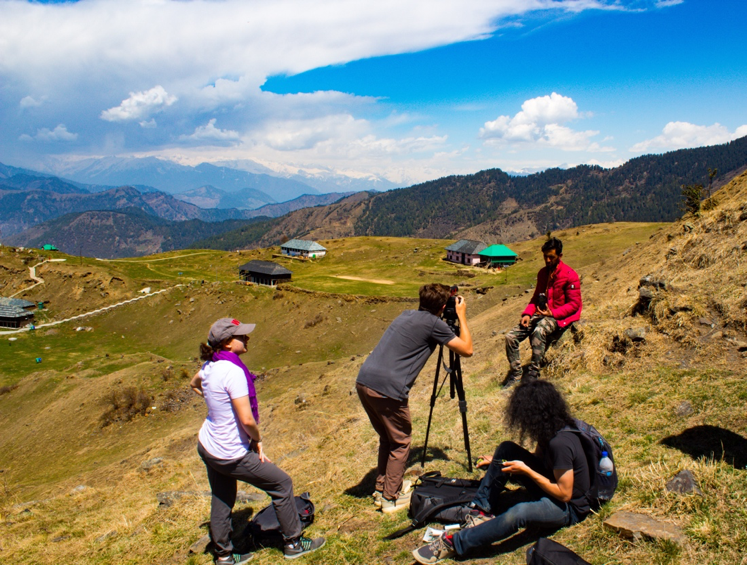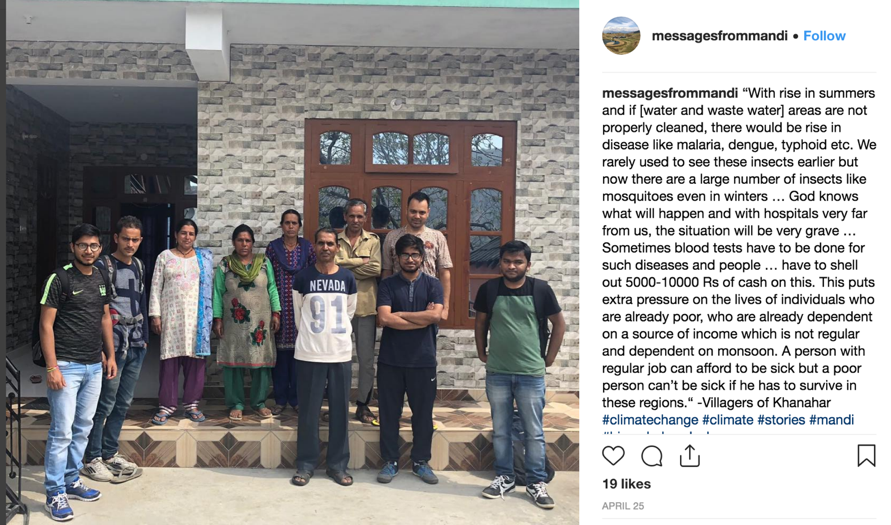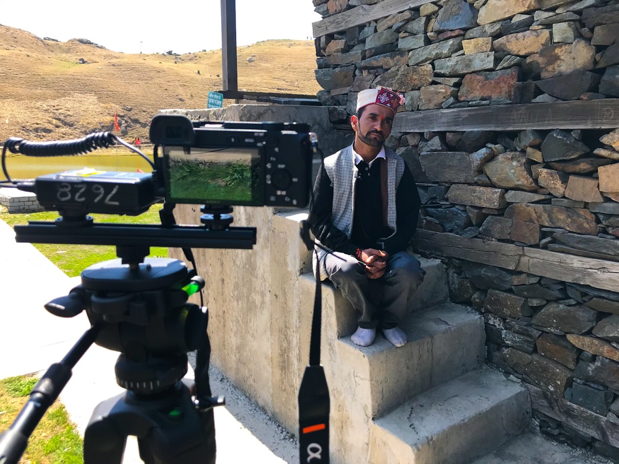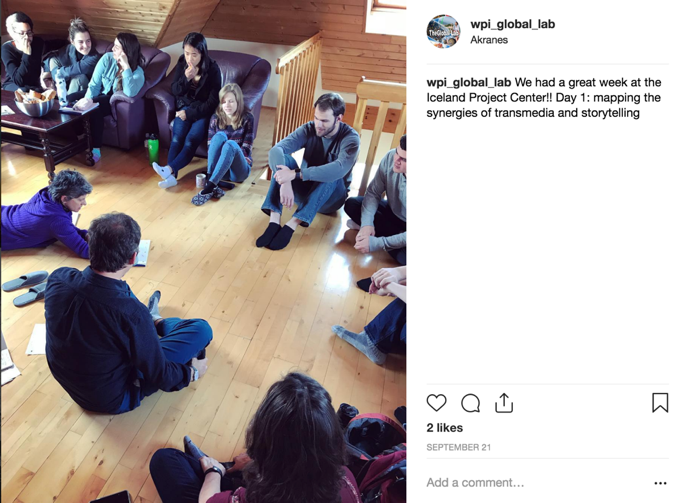|
This blogpost is from Worcester Polytechnic Institute Global Studies professor Ingrid Shockey. A group of her students visited Himachal Pradesh, India in spring 2019 and recorded climate stories from residents there. Bringing STEM Students into Climate Change Conversation Worcester Polytechnic Institute (WPI) is known for science and engineering education, but a key aspect of its curriculum asks all third-year students to participate in a project-based learning experience on a topic at the intersection of environment, technology, and society. As a global studies professor, I have the unique opportunity to facilitate students through this process. Most of my students arrive in my class already globally-minded and committed to making a contribution with their careers. They are motivated and interested, but they lack critical skills and the confidence for engaging in and with real communities. STEM students are well-equipped to design technological strategies to mitigate climate change, but there is a significant gap between theory and learning first-hand from individuals in vulnerable locations. In 2017, I embarked on a challenge to teach students how to collect climate change stories from lifelong residents in rural and urban communities in settings away from the university. I work with small teams of students each year at one of WPI’s off-campus project centers, most recently at a collaborative site in rural northern India. This environment is usually the first opportunity my students have had to interact with a community as part of their education, and for some it is the first time they have left Massachusetts. I can see that they are shy, and at first resist reaching out to strangers to initiate the conversations that will bring stories to life on camera. Many students are also new to creative media or filmmaking beyond social media posting, and struggle with equipment failures. Furthermore, they begin to learn—on the ground—that there are important responsibilities associated with storytelling. We discuss accountability in listening, we practice participation in difficult conversations, we reflect on our assumptions, and we weigh how media exposure might amplify our findings. WPI students tell me before these exposures that the weight of climate change and a future filled with uncertainty has left them paralyzed. The recording process prompts a cautious step towards activism. They know that the work of gathering scientific data and statistics is useful for informing models and government policy, but when students hear the experiences of ordinary people, it adds gravity to their understanding of how the changing climate is playing out in real life. As one student told me: Till now, I only heard about the statistics around climate change, but this project personalized the issue. We could hear the helplessness. We thought people were unaware, but they are not. They just don’t know what to do. Others have reflected on aspects of privilege, class, and power that cannot be felt in the classroom: We learned how livelihoods are affected, that people had to change how they LIVE. Our privilege right now is that we are not affected at this level yet. It made a change in me, in part of my life. We better understand the “human-wide” community that we are all together in this. To date, my WPI teams have recorded stories in Wellington New Zealand, in Iceland, and in northern India. The project center in India is further enriched by our partnership with third-year STEM students from the Indian Institute of Technology Mandi, where we curate an Instagram account together with images and short excerpts from the stories of rural villagers (https://www.instagram.com/messagesfrommandi/). The effort will continue onward to Japan, U.K., and Greece in 2020. I see important patterns in the full body of work. Some climate change indicators have emerged as a result of our citizen-science that are still not well-documented by local governmental agencies at the sites. In Iceland, the sub-Arctic landscape prompts memories about now-receding glaciers, anxiety about climate migration, and uncommonly heard phenomena such as land RISE and glacial surge related flooding. In rural Himalayan villages, residents wonder how and when the government will help them. Other findings confirm universal fears for global health and wellbeing that are shared by individuals, whether from Himachal Pradesh India, or Reykjavik Iceland: the outlook for families, futures, and livelihoods. All are glad to share their experiences. In the end, I am acutely aware that the simple process of listening and telling stories opens an exchange across culture, age, language, and space. My students will graduate as engineers and scientists having learned that even their short conversations have transformed how they think about the design of technologies and have contributed to a common vision for a desirable future. They are also humbled to learn that many of those most affected by climate change have never been asked to share evidence and ideas that are critical to the solutions. I find that the simplest path forward is to teach the art of empathy. Participation and practice in HOW to listen is the first step in linking environment, science, policy, technology, and sustainable futures. Ingrid Shockey ([email protected]) is an Associate Teaching Professor in the Interdisciplinary and Global Studies Division (IGSD) at Worcester Polytechnic Institute. Her work focuses on teaching cross-cultural perspective-taking and fostering community engagement skills for teams. Aside from advising fieldwork with students, she directs two undergraduate Project Centers: a stand-alone site in Wellington, NZ (since 2012) and a partnered site in northern India at the Indian Institute of Technology at Mandi (since 2013). With a background in Environmental Sociology, she also teaches a course on environmental innovation and design for Environmental Studies at WPI. Most recently, she was the inaugural Global Fellow in residence at the Global Lab in the Foisie Innovation Studio at WPI, working on a project to map climate change stories.
0 Comments
Leave a Reply. |




 RSS Feed
RSS Feed